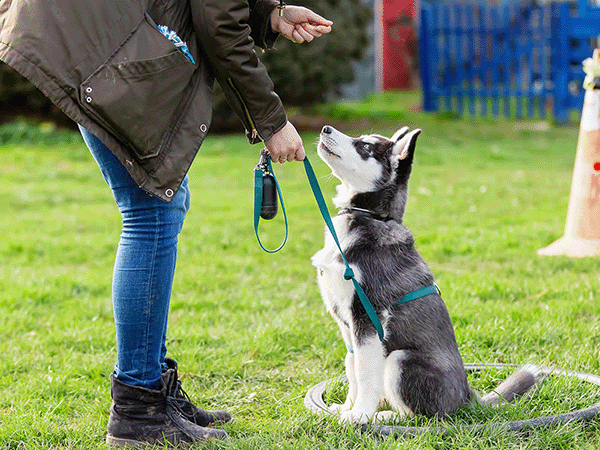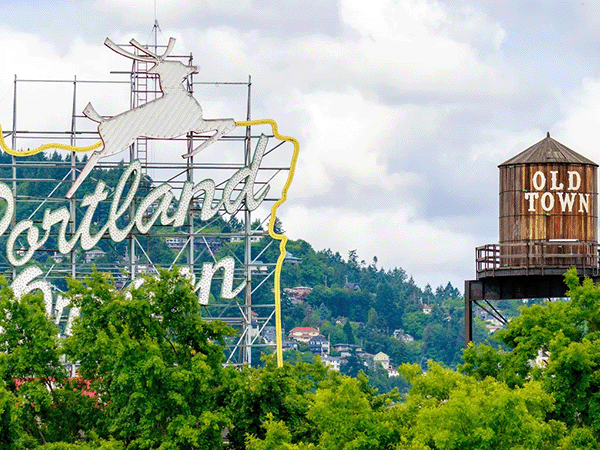Dog Sports 101: Finding the Right Activity for Your Pup

Dog sports—organized athletic activities where dog-handler teams compete alongside, and against, each other—are growing in popularity. One reason for this increased interest? Many dog sport venues are open to beginners! You don’t have to be a seasoned competitor or canine professional to try them out with your furry friend.
We’ve put together this introduction to dog sports for every pet parent whose interest has been piqued by conversations about agility competitions, flyball games, rally obedience, and all their team competition cousins in recent years.
Here’s the low down on:
- What even is a dog sport?
- Which pets and people are eligible to compete in a dog sport?
- What are the most popular dog sports? Why are these activities fan favorites?
- How can you choose the right dog sport to participate in with your pup?
Let's dive in!
1) What are dog sports, exactly?
“Dog sport” is a broad label. At their core, modern dog sports are activities meant for dogs and their people to enjoy together. These pursuits usually combine elements of athleticism, intelligence, and teamwork.
Dog sports are both similar to—and different from—organized human sports
Some canine sports are similar to what we imagine human sports to be. Consider flyball, for example. In this fast-paced activity, teams of dogs run a relay course. The team with the fastest time wins. (Instead of carrying a baton, they carry a ball in their mouths.)
Other dog sports are quite different from our human activities. Think of rally obedience, where dogs respond to their owner’s cues on the spot in a looser version of a formal obedience competition.
Dog sports are for more than professional breeders and trainers
Many canine sports started with the goal of "proving" (that is, demonstrating quality) breeding stock. Herding competitions for working dogs on farms is one example. Others came about just for fun, like dock diving——and today it’s possible to compete in most dog sports at an amateur level! (This is especially true in North America, where American pet parents love doing all sorts of activities for fun with their companions.)
There are multiple classes of competition for most dog sports, ranging from the most basic competitions designed for entry-level participants all the way to advanced competitions for experienced dog-handler teams.
Dog sports be wonderful opportunities for canine enrichment, socialization, and bonding with our pets.
2) Who can compete in dog sports?
Dog sport rules vary by sport, organization, and sometimes even specific trial. (Facilities often host “fun runs” with looser rules than structured competitions. This can be the perfect entry point for beginners.)
Does your dog need to be a purebred to enter dog sport competitions?
In general, you do not need to have a purebred dog to find a dog sport you enjoy. Breed eligibility requirements depend on your chosen sport—but mixed breed dogs are welcome in many events.
Some dog competitions, like conformation dog shows, do compare individual animals to their larger breed standards. Most handlers don't consider this a "sport" the way they do agility, flyball, and other activities due to the lesser physical demands. That said: Dog shows are still a lot of work, and they can be fulfilling events for you and your pup—plus a way to get involved with local breed clubs! You can learn more about show dog training in this article.
What health requirements are there to participate in dog sports?
Your dog needs to be in good physical health to be an ideal candidate for any canine sport—regardless of their breed—since most dog sports involve some level of physical activity. But different sports have varying physical demands!
Some of the most strenuous dog sports are:
- Agility
- Flyball
- Dock diving
- Disc dog sports
- Lure coursing
The easiest dog sports for elderly or injured dogs to participate in are:
- Nosework or scent work
- Rally obedience
- Barn hunt
- Other activities like working towards trick dog titles
Does your dog need a certain temperament to do dog sports?
Not every dog needs the same temperament for every sport. It's a good idea to match your pup's natural abilities with the requirements of your chosen activity—this alignment can improve their performance and everyone's enjoyment!
- Consider your dog's drive: Dogs involved in sports like agility, obedience trials, or flyball benefit from having a strong drive to work and play. They should enjoy tasks that require physical and mental effort. (Don't worry if your dog isn't a distinct breed known for these instincts, though—even companion dog breeds can excel in competitive activities with the right practice and motivation.)
- Can your dog focus around distractions? Dog sport competitors need to maintain focus amid distractions both in training and during competitions. (Don't worry if your four-legged friend isn't there yet. This ability can be trained!)
- Ask if your canine companion enjoys working with you: Many sports involve teamwork between the dog and handler. Dogs who enjoy pleasing their owners—often members of biddable breeds—excel most quickly! The stronger your bond, the more naturally this cooperation will come.

3) Popular dog sports
Here are some of the most popular dog sports for pet parents to explore, especially in the United States.
Canine agility
- Team or single-dog? A single dog and handler run the course at a time
- Are dogs loose at the same time? (Is the sport reactive dog friendly?) Dogs can often see each other—but the course is usually sectioned off
Known for its fast-paced televised competitions, agility is one of the best recognized canine sporting events. Most laypeople have at least a general idea of what it’s about: Dogs complete timed courses of varying obstacles—these include challenges like jumps, tunnels, and weave poles—during sanctioned agility events or more casual fun runs. Herding breeds like Border Collies are popular contenders.
You can learn more about agility in our guide at this link!
Flyball
- Team or single-dog? Multiple dogs run on the same team, though only one actually moves at a time
- Are dogs loose at the same time? (Is the sport reactive dog friendly?) We do not recommend traditional flyball for dogs still going through reactivity training
At its simplest, flyball is a relay race. Two teams of dogs (eight total, four on each team) complete a straightforward yet challenging set of obstacles in order to reach the finish line. Each dog must go over hurdles, quickly turn and pressing a pad to launch a ball from a box, and finally catch and carry the ball back over the hurdles to their starting point.
You can read more about flyball in our guide here.
Dock diving (or dock jumping)
- Team or single-dog? A single dog jumps at a time
- Are dogs loose at the same time? (Is the sport reactive dog friendly?) Dogs can often see each other—but the pool and dock are separate from the waiting and viewing areas
Dock diving is quickly becoming a favorite canine sport among “casual” pet owners because it’s a straightforward activity. Exactly like the name implies, dogs run and jump off of a dock into a pool or other body of water! You can compete for the farthest jump in distance diving or see if your dog can grab a raised bumper in the air retrieve event.
You can learn more about dock diving at this link!
Disc dog competitions
- Team or single-dog? A single dog and handler play the game at one time
- Are dogs loose at the same time? (Is the sport reactive dog friendly?) Dogs can often see each other—depending on the venue, the field may or may not be separated from those on the sidelines
Dog disc sports, also known as canine disc sports or frisbee dog sports, are activities that involve dogs and their handlers performing various throwing and catching routines with frisbees. Disc dog competition series provide a fun and interactive way for dogs and their owners to bond—all while showcasing athleticism, agility, and coordination.
You can see some of our favorite dog frisbee recommendations here!
Skijoring, bikejoring, canicross, and other forms of mushing
- Team or single-dog? Both are possible!
- Are dogs loose at the same time? (Is the sport reactive dog friendly?) Dogs need to run by one another and pass from behind (or be passed) in close proximity in competitions
These three canine sports are all different variations of having your dog pull you while wearing a specific harness. (The right equipment is important to safely distribute weight and avoid injury.)
- At its simplest, skijoring is a winter sport where a skier is pulled by a horse, dog, or even a motor vehicle. It combines the velocity of downhill skiing with the more approachable terrain of its cross-country counterpart.
- Bikejoring is similar to traditional mushing on a sled except it’s with a bike. Essentially, one dog or a team of dogs are leashed to a bike (with a person riding it), and they pull the bike along.
- Short for “canine cross country,” canicross is trail racing with your four-legged best friend. However, there is much more to it than simply hitting a random path. Canicross events test your bond and communication.
You can read more about skijoring in this article, bikejoring in this piece, and canicross in this one.
Lure coursing
- Team or single-dog? A single dog chase the lure at one time
- Are dogs loose at the same time? (Is the sport reactive dog friendly?) Dogs can often see each other and sometimes run the course together
Lure coursing, sometimes known as lure chasing or lure racing, is an activity for dogs to engage their natural prey drive instinct to hunt. Not the same as simply chasing a tennis ball across an open field, lure courses are established paths made of pulleys with a lure, usually a piece of plastic with a bag attached to it. The lure is then released, moving through the course, which the dogs chase to their heart’s delight.
In many lure coursing trials, dogs are released into the field in teams of around three, with each dog outfitted with a different colored fitted blanket to tell them apart.
Learn more about lure coursing in this guide!
Nosework and tracking
- Team or single-dog? A single dog and handler run the course at a time
- Are dogs loose at the same time? (Is the sport reactive dog friendly?) Dogs can often see each other—but the course is usually sectioned off with one dog participating at a time
Nosework, also known as scent training for dogs, is a way for canines to tap into their strong senses of smell. There are multiple different varieties of K9 nosework where your pup can explore the fun—and focus—of scent detection.
At the professional level, many working dogs perform scent detection to aid their human handlers with tasks like:
- searching for missing persons or illegal contraband
- sniffing out diseases like cancer
- detecting pests like bed bugs
- and even finding culinary delicacies like truffles.
While nosework pulls from the same structures and objectives as scent detection, many pet parents and professional trainers as a fun activity for non-working dogs. Casual nosework offers big benefits to both dogs and their humans. It's especially great for mental stimulation—without demanding tough physical abilities!
Find out more about nosework in this article.
Barn hunt
- Team or single-dog? A single dog sniffs for the rats at a time
- Are dogs loose at the same time? (Is the sport reactive dog friendly?) Dogs can often see each other—but the course is usually sectioned off from observers
Barn hunt is a dog sport that replicates the traditional role of vermin hunting on farms. It provides a safe and structured environment for dogs to demonstrate their hunting instincts and scenting abilities. This beginner-friendly activity involves dogs searching for hidden rats in a barn-like setting constructed from straw bales, tunnels, and various obstacles.
Rally obedience and canine freestyle events
- Team or single-dog? A single dog and handler run the course at a time
- Are dogs loose at the same time? (Is the sport reactive dog friendly?) Dogs can often see each other, but the performance area is usually sectioned off
Rally obedience, also known as rally-O, is a dog sport that combines elements of traditional obedience training and agility. It is designed to test a dog and handler's teamwork, grasp of obedience skills, and ability to navigate a course while reading each other's body signals.
Canine freestyle, also known as musical canine freestyle or dog dancing, is a creative and expressive dog sport that combines elements of obedience, tricks, and choreography. The biggest draw? Handlers set their performances to music! In canine freestyle, a dog and their person perform a routine of synchronized movements, tricks, and dance steps. This impressive display showcases teamwork, coordination, and individual artistic interpretation.

4) How to find the right dog sport for you
With so many dog sport possibilities, it can be hard to know where to start. Here’s how to figure out which activity is the best fit for you and your pup!
Attend a few competitions to see what different sports are like
One of the best ways to get a feel for a dog sport is to visit an event in person. We recommend attending without your dog the first time so you can focus fully on the environment around you—you'll be able to get used to the daily activity of the competition schedule, competition type, and more.
Then decide if you think it looks like something your pup would enjoy!
You can find local and regional events in a few ways:
- Follow large dog sport organizations, like the American Kennel Club, and refer to the events sections of their websites
- Join local Facebook groups or other social media forums for dog sports in your area, where you can interact with fellow pet owners and professional trainers alike
- Ask local trainers if they know of any participating facilities nearby
Consider your dog’s instincts and preferences
Think about the things your dog enjoys most. Maybe you have a herding breed who loves to control objects (like an Australian Shepherd, Australian Cattle Dog, Border Collie, or mix)? Something like treibball, where dogs maneuver inflatable balls, could be a great way to fulfill their instincts!
Or maybe you have a terrier who always wants to track down small critters? An activity like barn hunt might be just the fit. What about super athletic breeds like Malinois and German Shepherd Dogs? Agility and even protection sports can be a favorite.
When in doubt, consider the physical activities and mental tasks your dog already loves—and use that as your starting point.
Play around with foundational skills at home
If you have an idea of a dog sport you’d like to pursue but aren’t sure how serious you want to get, starting with some foundational skills in your own space can be an ideal way to test the waters.
There are countless DIY opportunities for everything from urban or backyard agility (using built-in obstacles in your neighborhood) to nosework (simple food searches with your pup’s meals are a low-effort way to start) and more.
Get in touch with a trainer you trust
Certified force free dog trainers are invaluable. Many of them compete in various dog sports with their personal dogs—and even if they don’t, they’ll be able to refer you to trusted facilities in your area where you can get started.
It’s a great idea to have a professional in your corner if you think you might be interested in competing someday!
Does my dog need to compete in dog sports?
As dog sports grow in popularity, so too does the pressure for owners to enroll their pets in more and more activities. (You can even find canine surfing competitions in some beach towns nowadays.) While we’re huge dog sport fans here at Sniffspot—many private dog park listings even provide fun extras like agility equipment to play on—it’s important to remember that there’s no reason you have to compete with your dog if you aren’t interested.
Dog sports are meant to be fun ways to enjoy the bond you share with your canine companion. They shouldn't sources of excess stress!
Other ways to exercise and provide enrichment for your dog
We’ve put together several general guides on keeping our dogs in top physical and mental shape. Take a look below if dog sports don't sound like your cup of tea.
- Best Ways to Exercise Your Dog
- Dog Exercise Calculator: How Much Exercise Does Your Dog Need?
- Comprehensive Guide to Enrichment Activities for Dogs
- Best Mental Exercises for Dogs
Trainer Review of this Article
There is so much misinformation out there, and we want to make sure we only provide the highest quality information to our community. We have all of our articles reviewed by qualified, positive-only trainers.
This is the trainer that reviewed this article:
Beth Joy, CPDT-KA, PMCT
Owner and Lead Trainer Unleashed Joy Dog Training - Mt. Airy, MD.
Certified Professional Dog Trainer (CPDT-KA)
www.unleashedjoy.com
Most recent articles
Related articles
Top dog guides per area
Dog training guides

Dog Food Aggression: Why You Shouldn't Punish It
Does your dog ever growl when you walk by their food dish? Maybe they get possessive of treats, carrying them far away and giving you side-eye when you start to approach — or snarling at your other pets or children if they get too close.

Best Dog Fields in the US: 25+ Wide-Open Spaces for Your Pup to Run Free
The best dog fields in the US offer something that traditional enclosed parks simply can't match: acres of open space where your pup can truly stretch their legs and run at full speed. From Colorado's 470-acre prairie meadows to Tennessee's award-winning "Outback," these wide-open spaces allow dogs to roam, explore, and exercise naturally while engaging instincts that cramped urban parks suppress.

The Ultimate Guide to Scent Training for Dogs
Your dog's nose is an amazing tool. Did you know they have 40 times the olfactory receptors than humans? Scent training for dogs taps into this superpower, turning everyday moments into exciting sniff-fests. It's enriching for all types of dogs – reactive, shy, or simply adventurous. Ready to explore the world of scent work for dogs? Let's get started.

Service Dog Training Costs: DIY vs. Pro
More than 80 million Americans rely on their service dogs to help them navigate the world. Task-trained assistance animals perform a huge range of life-changing—in many cases, life-saving—services: These dogs act as eyes for visually impaired handlers, provide mobility support, alert to seizures and blood sugar crashes, interrupt anxiety attacks, remind their people to take medications, and so much more.

How to Deal With Puppy Potty Training Regression

Dirty Dog Syndrome: Causes, Solutions, and Prevention
It's a cringe-worthy moment every dog owner dreads: your furry friend chowing down on something truly disgusting. If your dog has a penchant for poop, you're dealing with coprophagia. It's more common than you think, and thankfully, often manageable. This article explores the reasons behind dirty dog syndrome, from instinct to learned behavior. We'll also give you practical tips to help break this unpleasant habit.

How to Train Your Rescue Dog: A Complete Guide
* All Sniffspot articles are reviewed by certified trainers for quality, please see bottom of article for details *
Dog enrichment guides

Best Dog Water Parks in the US: 15+ Amazing Splash Destinations for Your Pup
Do you have a water-loving dog looking to burn some energy? There are countless dog parks to visit throughout our country — but some of them become far too hot in the midday sun to be safe for your pets to play. That’s why we’ve put together a list of some of the best dog water parks throughout the United States! At these locations, your pup can frolic, splash, and swim to their heart’s content.

Best Dog Fields in the US: 25+ Wide-Open Spaces for Your Pup to Run Free
The best dog fields in the US offer something that traditional enclosed parks simply can't match: acres of open space where your pup can truly stretch their legs and run at full speed. From Colorado's 470-acre prairie meadows to Tennessee's award-winning "Outback," these wide-open spaces allow dogs to roam, explore, and exercise naturally while engaging instincts that cramped urban parks suppress.

Best Toys for Herding Dogs: Keeping Your Pup Happy & Engaged
Herding dogs are amazing, intelligent companions. But that also means they need more than just a simple game of fetch. Finding the right toys for herding dogs is key to keeping them happy and stimulated. This article explores some of the best toys for herding dogs, including options specifically for breeds like Border Collies and Australian Shepherds. We'll help you discover the perfect herding toys for dogs to tap into their natural instincts and keep them entertained for hours.

Tough Dog Toys for Aggressive Chewers: A Practical Guide
Does your dog destroy every toy you give them? Is your house littered with the remnants of plush toys? Are you tired of wasting money on "indestructible" dog toys for aggressive chewers that don't last? Then this post is for you. We'll cover everything you need to know about finding the best dog toys for aggressive chewers, so you can finally give your pup something safe, durable, and fun.

Daily Exercise Calculator: How Much Exercise Does Your Dog Need?
Everyone knows dogs need exercise, but how much is enough? Walks are great, but creating a truly balanced fitness plan means understanding your dog's specific needs. This post helps you develop a daily exercise calculator for your dog, considering breed, age, and lifestyle. We'll cover fun activities, understanding exercise intensity, and recognizing when your pup has had enough. Let's create a plan that keeps your dog happy and healthy!

Complete Guide To Herding With Dogs
* All Sniffspot articles are reviewed by certified trainers for quality, please see bottom of article for details *

Dog Enrichment Activities: The Ultimate Guide
Ever feel like your dog is restless or bored? They may be getting enough exercise, but still need more. That's where enrichment activities for dogs come in. Giving your dog opportunities to sniff, explore, and problem-solve can make a world of difference. Whether you have a puppy, adult, or senior dog, enriching their environment is key for their well-being. Let's explore how to add cognitive enrichment for dogs, even tailoring activities to your dog's breed with breed specific enrichment and fun enrichment games for dogs.
Dog reactivity guides

Rottweiler Aggression: Truth vs. Myth
Many dogs have gotten a bad reputation over the years for being "dangerous breeds." Rottweilers are among them. Like pit bulls and other large, blocky-headed types of dogs, these powerful and beautiful animals are often assumed to be aggressive.

Best Dog Fields in the US: 25+ Wide-Open Spaces for Your Pup to Run Free
The best dog fields in the US offer something that traditional enclosed parks simply can't match: acres of open space where your pup can truly stretch their legs and run at full speed. From Colorado's 470-acre prairie meadows to Tennessee's award-winning "Outback," these wide-open spaces allow dogs to roam, explore, and exercise naturally while engaging instincts that cramped urban parks suppress.

The Reactive Dog Chart: How to Calm Your Dog's Triggers
If your dog lunges, barks, or loses their mind at the sight of another dog, a stranger, or a bicycle, you’re living with a reactive dog (and you’re far from alone). Dog reactivity is one of the most common behavioral challenges dog owners face, and it can make even a simple walk feel stressful and isolating.

How to Socialize a Reactive Dog: A Step-by-Step Guide
Does your dog display reactivity to other pets or people—barking, lunging, or growling when they see their triggers? Whether they're a rescue still settling in, missed critical socialization as a puppy, or had a negative experience, you're not alone. Reactivity is one of the most common dog behavior concerns, and with the right approach, you can help your reactive dog feel calmer and more confident around their triggers.

What Is a Reactive Dog? The Complete Guide for Understanding and Helping Your Pup
Does your dog transform into a barking, lunging tornado the second they spot another dog across the street? You're definitely not alone. According to our research of over 4,000 dog owners, 66% of dogs show some signs of reactivity.

9 Best Online Communities for Reactive Dog Parents
Does your dog's reactivity make walks stressful? You're not alone. Many dog owners face similar challenges. This guide offers practical advice and support for managing reactivity, including finding the best online dog training for reactive dogs. We'll connect you with reactive dog support groups, share training tips, and explore resources like the best dog training app for reactive dogs. Let's build a stronger bond with your dog, together.
* All Sniffspot articles are reviewed by certified trainers for quality, please see bottom of article for details *
How To Groom a Reactive Dog
* All Sniffspot articles are reviewed by certified trainers for quality, please see bottom of article for details *
Sniffspot community guides

The State of Public Dog Parks Across the United States
From 2009 to 2020, there was a 40 percent increase in the development of public dog parks. Designated spots for canine exercise have become commonplace in every major city in North America — many pet owners won’t even consider renting an apartment that doesn’t have its own fenced-in pet area for their canine companions.

Best Dog Fields in the US: 25+ Wide-Open Spaces for Your Pup to Run Free
The best dog fields in the US offer something that traditional enclosed parks simply can't match: acres of open space where your pup can truly stretch their legs and run at full speed. From Colorado's 470-acre prairie meadows to Tennessee's award-winning "Outback," these wide-open spaces allow dogs to roam, explore, and exercise naturally while engaging instincts that cramped urban parks suppress.

How This Family is Affording Their Dream Property Through Renting it Hourly to Dogs
Thousand Oaks, California has been a safe haven for Sniffspot host, Jen, since childhood. Having grown up in busy Santa Barbara, Jen, an introvert from an early age, would seek out solitude and serenity away from tourists attractions and droves of people visiting from elsewhere. “My grandparents own 60 acres about a 30 minute drive from here, and I grew up spending every summer and every holiday visiting them on the ranch,” Jen explained. “In Santa Barbara, we wouldn't go to the beach on the weekend because that's where everybody was, so you'd find places off the beaten path where the tourists weren't. For me, the ranch was just my happy place.”

Host Tips: Ellen K. What Makes Sniffspot Successful for Me
Ellen is the host of Country Pasture Getaway, one of Sniffspot's most popular sniff spots. She has taken the time to write up the lessons she has learned about how to be a great sniff spot host.

How this Oregon Farmer is Making a Business From Renting Her Land to Dogs
Just 20 minutes outside of the busy city of Portland, Oregon, and settled right on the banks of the Columbia River, you’ll find what countless visitors have flocked to the area in search of – mountain views, crisp, clean air, and running water for miles. What you might not expect to find, however, is a hidden oasis designed just for dogs and their people, owned and operated by a farming couple and enjoyed by visitors on two legs, and four.

Host Tips: Fran T. Providing Great Guest Service at our Spot
Fran is the host of Ranch Setting, one of Sniffspot's most popular spots. She has taken the time to write up the lessons she has learned about how to be a great Sniffspot host.

How Sniffspot Helped a Nervous Rescue Work Through His Fears and Change His Family’s Life
This is the story of a family and dog rescuing each other.
Top dog trainers in the US

The Best Dog Trainers in the United States of 2026
This is a list of the top dog trainers in the United States, based on votes from the Sniffspot community and the general public.
The Best Dog Trainers in Seattle, WA of 2026
This is a list of the top dog trainers in Seattle, WA, based on votes from the Sniffspot community and the general public.
The Best Dog Trainers in Portland, OR of 2026
This is a list of the top dog trainers in Portland, OR, based on votes from the Sniffspot community and the general public.
The Best Dog Trainers in Los Angeles, CA of 2026
This is a list of the top dog trainers in Los Angeles, CA, based on votes from the Sniffspot community and the general public.
The Best Dog Trainers in New York, NY of 2026
This is a list of the top dog trainers in New York, NY, based on votes from the Sniffspot community and the general public.
City dog parks guides

Top 10 Indoor Dog Parks: A US Guide
Looking for a space to play with your dog no matter what the weather’s like outside? Look no further than our list of the best indoor dog parks in the United States! These climate-controlled spaces are growing in popularity as pet ownership increases throughout the country. As a bonus, many of them also offer dog training, boarding, grooming, or daycare services on the premises.

Best Dog Fields in the US: 25+ Wide-Open Spaces for Your Pup to Run Free
The best dog fields in the US offer something that traditional enclosed parks simply can't match: acres of open space where your pup can truly stretch their legs and run at full speed. From Colorado's 470-acre prairie meadows to Tennessee's award-winning "Outback," these wide-open spaces allow dogs to roam, explore, and exercise naturally while engaging instincts that cramped urban parks suppress.

Best Dog Parks in the US: Ultimate Guide to Public & Private Off-Leash Adventures
Is your pup giving you those pleading "let me run free" eyes? Whether you're a new dog parent or a seasoned pro looking for fresh adventures, finding the perfect off-leash paradise for your furry friend can feel ruff! From sun-soaked California beaches where your water-loving lab can make a splash to mountain trails in Vermont where your adventure buddy can chase every scent, we've sniffed out the 15 best dog parks across America.

Dog Parks Near Me: Las Vegas Edition
Looking for the perfect dog park near me in Las Vegas? You're in luck! This guide explores all the best options for your pup, from public dog parks to private dog parks near me on Sniffspot. We'll help you find the ideal spot for playtime, socializing, and fresh air. Plus, we'll cover essential etiquette and safety tips to ensure a happy visit for everyone. Get ready for some tail-wagging fun!

Top Sniffspot Locations: Find the Perfect Dog Park
Looking for the perfect dog park? Whether you need a wide-open public space or a private, fenced-in spot, this guide will help you find the best dog parks across the US. We'll cover top-rated public parks, the perks of private dog parks, and even explore Sniffspot locations – giving your pup a safe and fun place to play. Ready to find your dog's new favorite spot? Let's go!

Sniffspot: Portland's Best Private Dog Parks
Ready to discover Portland's best dog parks? Whether you're looking for a public park or the unique experience of a private Sniffspot, this guide has you covered. We'll help you find the perfect spot for your pup, with tips on what to bring, how to prepare, and even understanding dog body language. Plus, we'll explore some top Portland dog parks, including public and Sniffspot options, so you can plan your next dog-friendly adventure in the City of Roses.
Portland Dog Parks: Public & Private Options
This page is about public city dog parks and also includes Sniffspot private dog parks. Sniffspot is the largest network of private dog parks for rent in the world!
Small Dog Park Guide: Tips for Finding the Perfect Spot
Finding the perfect dog park for your small breed can be ruff! Big dog parks can be overwhelming, even dangerous, for little pups. This comprehensive guide helps you sniff out the best small dog parks for your pint-sized companion, covering everything from essential safety checklists to top recommendations for small dog parks across the US—including both public spots and private dog parks.
Dogs breeds

German Shepherd Guide: Best Family Dog? Truth from 9K Owners
The German Shepherd Dog (GSDs) are known for their intelligence, loyalty, and striking appearance. They're also incredibly versatile, excelling as working dogs and devoted family companions. This guide covers everything you need to know about GSDs, from understanding their unique traits and rich history to practical advice on training and care. So, whether you're a seasoned GSD owner or just starting your research, let's explore this remarkable breed together.

Best Dog Fields in the US: 25+ Wide-Open Spaces for Your Pup to Run Free
The best dog fields in the US offer something that traditional enclosed parks simply can't match: acres of open space where your pup can truly stretch their legs and run at full speed. From Colorado's 470-acre prairie meadows to Tennessee's award-winning "Outback," these wide-open spaces allow dogs to roam, explore, and exercise naturally while engaging instincts that cramped urban parks suppress.

Labrador Retriever: America's Best Family Dog? Owner Truth
Discover the Labrador Retriever, a breed celebrated for its playful nature, affectionate temperament, and trainability. Labradors are known for their friendly demeanor and adaptability, making them perfect family companions and versatile working dogs. As one of the most popular types of retrievers, Labs are ideal companions for various lifestyles and are recognized by the American Kennel Club (AKC) as an excellent breed for families.

Golden Retriever Advice: The Complete Owner's Guide
Golden Retrievers: they're gorgeous, playful, and incredibly popular. But before you welcome one into your home, you need the right golden retriever advice. This guide draws on the wisdom of nearly 10,000 Golden Retriever owners, offering practical tips for caring for these affectionate dogs. From understanding their high energy levels to mastering grooming and training, we'll cover everything you need to know. So whether you're already a devoted Golden parent or just starting your research, get ready to learn how to give your furry friend the best possible care.

Are American Staffordshire Terriers Good for First-Time Owners: Complete Guide
Think American Staffordshire Terriers are tough? Think again. While their muscular build might intimidate some, these dogs are known for their playful and loyal personalities. This guide draws on the experience of nearly 10,000 AmStaff owners to reveal the truth about this often misunderstood breed. Want to learn more about caring for an American Staffordshire Terrier? You're in the right place.

Australian Shepherd Facts: Breed Info & Care Guide
Discover the Australian Shepherd, an AKC breed celebrated for its trainable, playful, and affectionate nature. Despite its name, the Australian Shepherd is actually a native breed to the United States, originally developed to breed on farms and ranches. Considered a medium dog, Australian Shepherds were bred for herding beginning in the 1950s. As one of the high-energy breeds, Aussies are known for their boundless energy and need for regular exercise, including aerobic exercise.

Essential Husky Facts for Owners: Breed Guide
Discover the Siberian Husky, a breed celebrated for its curious, intelligent, and loyal nature. Considered a medium-sized dog, Siberian Huskies were originally bred in Russia for sledding, beginning in the early 20th Century. Today, they're one of the most popular active breeds in North America.



























